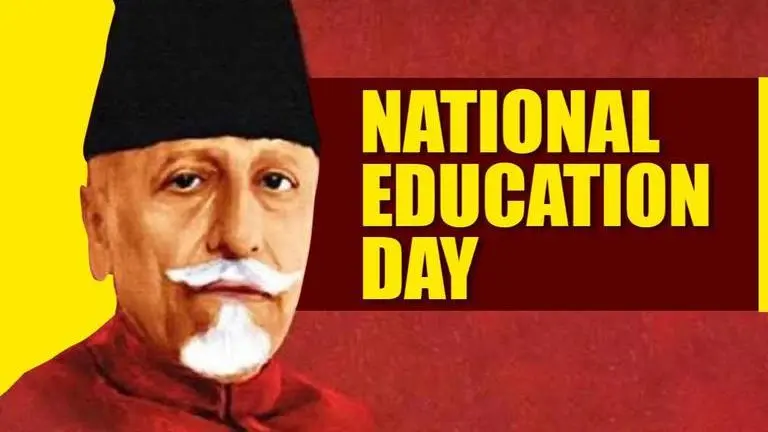Updated 11 November 2019 at 18:52 IST
National Education Day 2019: Lesser known facts about Abul Kalam Azad
The birth anniversary of a freedom fighter and the first Education Minister of India, Maulana Abul Kalam Azad is celebrated as National Education Day.
- India News
- 3 min read

The birth anniversary of a freedom fighter and the first Education Minister of India, Maulana Abul Kalam Azad is celebrated on November 11 as National Education Day. Campaigns and programs are organized all over the nation in order to spread awareness about the importance of education. The Ministry of Human Resource Development took the decision on September 11, 2008, to declare the day as National Education Day. After the independence of India, Maulana Abul Kalam Azad established the University Grants Commission (UGC) and was also the youngest president of the Indian National Congress at the age of 35. While being the active advocate of free education in India, he also established higher educational institutions.
Celebrating National Education Day today!
— Ministry of HRD (@HRDMinistry) November 11, 2019
Remembering India's 1st Education Minister
Maulana Abul Kalam Azad Ji, Freedom Fighter, Indian scholar & the biggest advocate of #education for women. pic.twitter.com/sicqnhuav7
Lesser known facts about Azad
Azad learned Arabic and Persian languages to further gained knowledge in various topics like philosophy, geometry, mathematics, and algebra. He even taught himself the English language along with world history and politics. Azad actively participated in the Independence movement against the British rule after he met two freedom fighters from Bengal, Arvind Ghosh, and Shri Shyan Sundar Chakraborty. He ran secret revolutionary centers throughout North India as well as Bombay. Azad started a weekly Urdu newspaper called 'Al-Hilal' in 1912 to increase the feeling of patriotism among the Indians.
Advertisement
Azad's contribution to education
His complete name was Maulana Sayyid Abul Kalam Ghulam Muhiyuddin Ahmed bin Khairuddin Al-Hussaini Azad and is still remembered as a poet, scholar, journalist and a freedom fighter. Even though his father was a teacher, Azad never received any formal schooling throughout his childhood but according to him, schools were factories that produce future citizens. He committed to develope educational institutions in India even before independence because he believed education is essential for fundamental growth and therefore, laid emphasis on quality education.
Advertisement
Azad was elected as a member of the foundation committee of Jamia Millia Islamia at Aligarh, Uttar Pradesh in 1920. His assistance also contributed to the shifting of the campus of Jamia Millia Islamia from UP to the capital. From 1947 to 1958, Azad served as the first Education Minister of the freed India and then became the leader of Congress in 1923. Years after which, Azad also became the head of the Constituent Assembly where the debates gave structure to primary education, girls' education, free and compulsory education for all children up to the age of 14.
It was under his tenure in the government, that higher educational institutes such as the Indian Institute of Technology, Indian Institute of Science, School of Planning and Architecture and the University Grants Commission. Azad is also the founder of Sangeet Natak Akademi, Sahitya Akademi, and Lalit Kala Akademi in order to promote education along with the culture in the country. In 1958, the Bharat Ratna Awardee passed away due to a heart attack on February 22.
Published By : Aanchal Nigam
Published On: 11 November 2019 at 18:39 IST
